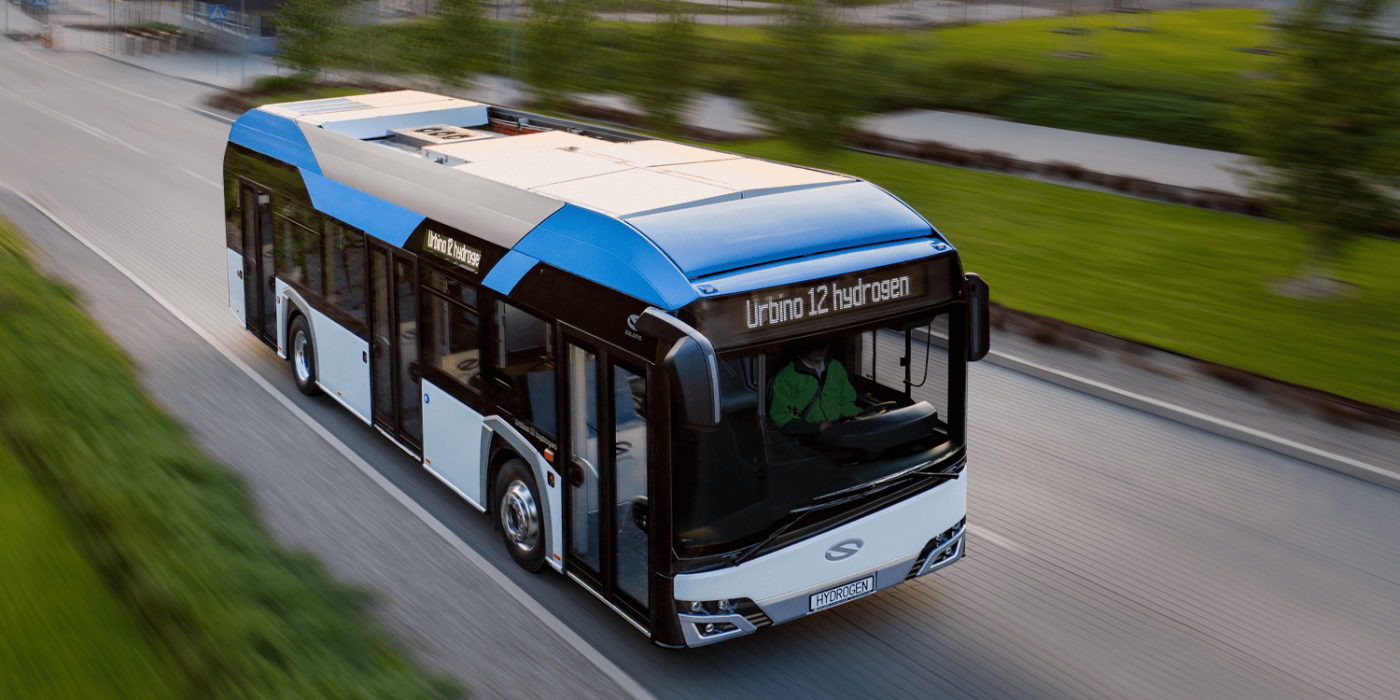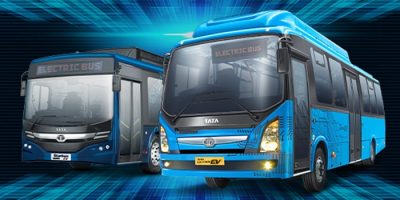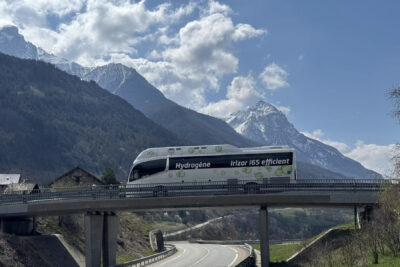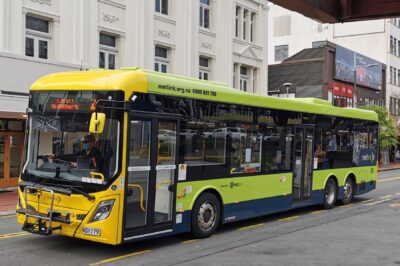MPK Poznan orders 25 Solaris Urbino 12 Hydrogen buses
The municipal transport company MPK in Poznan, Poland, has ordered 25 hydrogen buses from Solaris. MPK had originally tendered 15 H2 buses but later extended the order by another ten units.
For Solaris, this is the largest order for fuel cell buses to date. The 25 Urbino 12 Hydrogen buses are scheduled for delivery to Poznan in the second half of 2023. The MPK fleet already includes 58 Solaris battery-electric buses, which account for almost 20 per cent of the total fleet.
With its five hydrogen tanks, the Urbino 12 Hydrogen is said to have a practical range of 350 kilometres. The hydrogen is converted into electricity in a 70 kW fuel cell. In addition to the fuel cell, a relatively small traction battery is installed, which is used as a buffer for power peaks. Since September, Solaris has also been offering the 18-metre articulated Urbino 18 Hydrogen bus.
For the interior of the 25 vehicles, MPK Poznan has opted for what it says is a “high standard of equipment”, as it has done with its other Solaris buses. The vehicles, painted green and yellow, have air conditioning, a passenger information system and video surveillance. There are USB charging ports for passengers’ mobile devices on the 31 seats. There is also an area for wheelchair users and passengers with prams. The buses are to refuel hydrogen installed at a regular gas station on Warszawska Street in Poznan.
“Poznań is investing in clean technologies, in innovation and in the future. This huge order puts the carrier among the most modern public transport operators in Europe, those that are focused first and foremost on clean air in cities and improving the quality of life for the next generation of their residents. The hydrogen Urbino 12 hydrogen emits only water vapour. Soon, the advantages and comfort of travelling by hydrogen Solaris will be available to Poznan residents,” Javier Calleja said during the signing of the contract.”
With the delivery of the hydrogen buses, the share of zero-emission buses in Poznan will increase from 18 to 25 per cent, with a target of 30 per cent by 2028. Krzysztof Dostatni, chairman of the board of MPK Poznań, said that parallel to the delivery of the H2 buses next year, the vehicles will also be with the lowest emission standards will be taken out of regular service. In 2020, MPK Poznan ordered 37 electric buses from Solaris, which included 31 12-metre solo buses and six articulated 18-metre buses. A year earlier, Ekoenergetyka-Polska began installing 16 charging stations with a total capacity of over 2.2 MW, for the city of Poznan. This includes pantograph chargers with capacities of up to 540 kW. This was preceded by an order for electric buses made in 2018 for 21 battery-electric buses from Solaris.
Solaris reports that the interest in hydrogen technology among European carriers has been rising from month to month, at the same time, there is also continued rising interest in purely battery electric buses. Solaris says it has so far delivered 62 hydrogen vehicles to transport operators from Italy, Germany, the Netherlands, Sweden, France and Poland.





0 Comments